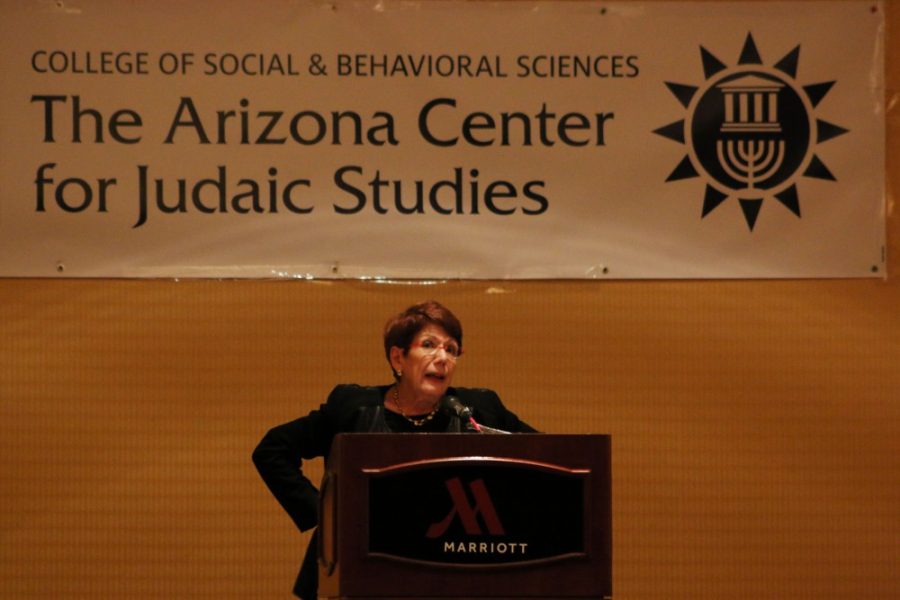The Arizona Center for Judaic Studies hosted its second annual Israel Studies Conference over the weekend, culminating with a keynote speech by Anita Shapira, professor emerita from Tel Aviv University, on Monday night.
The conference, called Balancing Unity & Diversity: Israel’s Changing Society & Politics, took place from Dec. 4-5 and featured historians, social scientists and professors from universities around the world. The individual sessions and seminars focused on Israel’s daunting task of balancing unity and diversity.
Shapira, who is known as a historian, professor and author, and received the Israel Prize for History in 2008, spoke on the vision and reality of Israel in 2016. She addressed a room full of students, professors, sponsors and community members and discussed everything from Israel’s history to the problems the country faces today.
She referred multiple times throughout her speech to the things that make Israel great, juxtaposed with its issues and controversies.
“If it’s so good, then why is it so bad?,” Shapira said. “Why do academic associations continuously attempt to pass resolutions boycotting Israel? Why do the Israeli media constantly attack the country’s political establishment?”
RELATED: Arizona Congresswoman Martha McSally speaks on Israel at UA dinner
She reflected on Israel’s evolution—something she witnessed—clearly remembering the day Israel was established as a Jewish state. She spoke on the nation’s advances in science, research, entertainment and creativity. Shapira addressed liberal attitudes toward women, the LGBTQ community and Israel’s Zionist movement.
Yet, Shapira contrasted these successes with what she identified as pitfalls, including Israel’s mishandling of education, the media’s attack on the political system and the Israeli-Palestinian conflict.
“The majority in both nations want peace,” Shapira said. “Is the problem an excess of leadership? Is it impossible to strike a balance between the demands of both sides? It all depends on who you speak to. The rhetoric on both sides negates peace.”
Shapira’s keynote speech addressed many sides of what is considered a complex issue.
“This year has been the most diverse in terms of presentation and all sides of the issue,” said Thomas Borin, a sponsor of this year’s conference.
For students who attended the various seminars and the keynote address, the conference presented an opportunity to shape, evolve or form new opinions on the issues.
RELATED: Artists for Israel promote the diversity and beauty of Israeli culture through graffiti
Despite, recognizing the challenges that Israel faced and continues to face in times of ongoing uncertainty, Shapira expressed her confidence in the hope for a bright future.
“Israel is a wonderful success story, a manifestation of the ability of human will to create something,” Shapira said. “We look back at Zionism’s leaders and thinkers who dream of a country living in peace with its neighbors and we are still hoping for their vision to become a reality in our time.”
Follow Leah Merrall on Twitter.









